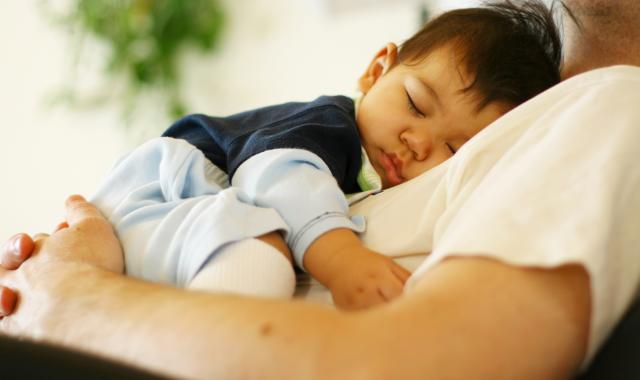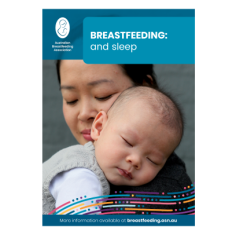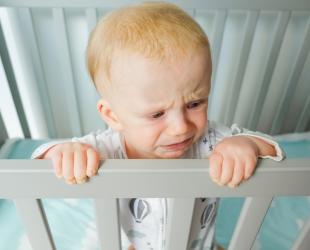You’re not alone—every parent wonders about baby sleep. Let’s explore what really helps.

It can feel like everyone has a tip or trick for getting your baby to sleep. There are countless books and programs, but babies don’t always follow the rules!
Being a parent is tiring and having a wakeful baby can be stressful. Here are some ideas that might help when you’re feeling sleep deprived.
Feeding your baby to sleep
- Most babies naturally feed to sleep, even as they get older. This is normal and supported by research.
- Breastfeeding to sleep is a common, helpful tool for many mums. It satisfies hunger and thirst, brings comfort, and helps babies relax.
- Feeding your baby to sleep isn’t a ‘bad habit’. Babies can still learn to settle in other ways with other people. But if you want your baby to sleep so you can eat dinner or go out, breastfeeding to sleep is quick and convenient.
- When you breastfeed, your baby’s body releases a hormone called cholecystokinin (CCK), which makes them sleepy. That’s why babies often drift off during a feed. If your baby wakes soon after, a top-up feed can help them fall into a deeper sleep.
- Young babies don’t yet make their own melatonin (the sleep hormone) —they get it through breastmilk.
Some babies don’t easily feed to sleep. If that’s your baby, there are other ways to help them settle.
Ways to help your baby to sleep
- Rocking, patting and holding our baby are common ways to help them settle. Try different holds and rhythms to see what works.
- Take your baby for a walk – around the house, in a pram or in a baby carrier. Sometimes a gentle bump helps.
- Try breastfeeding while standing and rocking or lying down.
- Wrapping may help your baby feel secure and prevent the startle reflex from waking them. Be careful the wrap isn’t too tight.
- Hold your baby until they’re in a deeper sleep. Babies start in ’active sleep’ (with faster, uneven breathing) and move into a deeper sleep after about 20 minutes. That’s a good time to transfer them into their sleeping place.
- Many babies don’t like being put down into a cot. Feeding your baby to sleep on a mattress on the floor can make it easier to roll away without moving them.
- Humming, singing or quiet whispers can help. White noise from a washing machine, vacuum cleaner, radio or soft white noise app can also be soothing.
- A bedtime routine helps older babies and toddlers. A predictable order—like bath, pyjamas, breastfeed, sleep—signals that it’s time to rest. As your baby grows, you might add story time or massage.
Image

What doesn't help babies sleep?
- There’s no evidence that giving formula will help your baby sleep better. Evidence shows that breastfeeding mums often get more sleep than those who formula-feed.
- Starting solids before 6 months is unlikely to improve sleep and may upset your baby’s tummy.
- Cutting short daytime naps or keeping your baby up late can lead to an overtired, unsettled baby and a cranky next day.
Babies wake at night for many reasons. Understanding these can help you manage night waking.
Helping your baby sleep longer
- Sleep near your baby. It’s easier to respond quickly at night, and many babies sleep better when close to a family member. Check how to co-sleep safely.
- Some mums give a ‘dream feed’—a late-night top-up breastfeed before they go to sleep themselves. This can help babies sleep a bit longer.
- When your baby stirs at night, wait a moment to see if they resettle. Some babies can do this on their own.
- Alternatively, responding quickly with a feed can help your baby settle before fully waking.
- Babies who know their parents will respond to their needs often settle more easily as they grow.
As babies get older, their sleep becomes more like older children and adults. They’ll sleep for longer stretches at night, and their sleep will become more predictable.
© Australian Breastfeeding Association October 2025
Find out more about babies and sleep
Online interactive session free for members
Newborn Virtual Village - Sleep and breastfeeding patterns in the early weeks


Related articles




